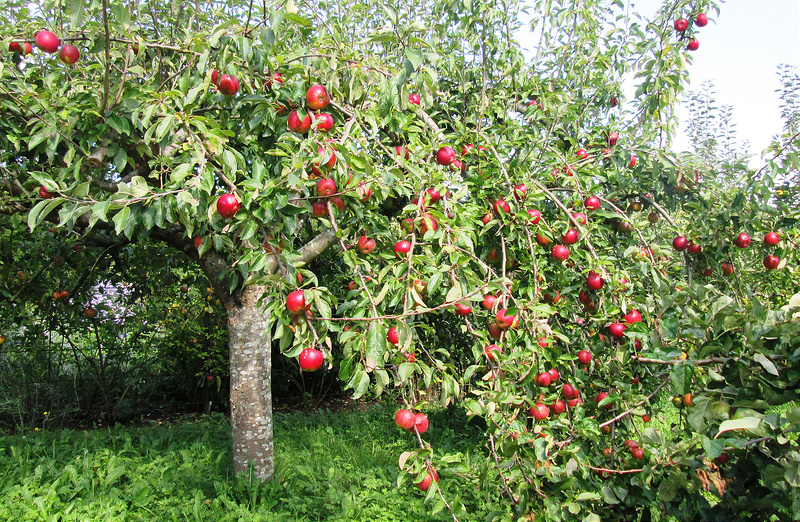|
Arbor Day in the United States and Australia, New Year of the Trees in Israel, National Tree Day in South Africa--Several nations celebrate a day set aside to acknowledge the blessings of the trees. There are many! Trees produce fruit and nuts, give lumber for construction, take in carbon dioxide and give off oxygen, are beautiful to look at, and the tree's leaves provide shade and the roots help stabilize the soil. In the United States we celebrate Arbor Day on the last Friday in April. The holiday celebrates the role of trees in our lives and began in Nebraska in 1872 at the request of J. Sterling Morton. He suggested a day set apart for public tree planting. He commented about the purpose of the day. "Arbor Day is not like other holidays. Each of those reposes on the past, while Arbor Day proposes for the future."
Every year the nation of Israel sets aside the 15th day of the month of Shevat (Tu Bi Sh'vat) as the "New Year of the Trees." In Hebrew this would be Rosh Hashanah La'llanot. On our 2019 calendar, this day begins at sunset on January 20 and ends at sunset on January 21. The three main activities and purposes of this day are as follows: 1. Jews often eat some of the fruit of the seven species that are associated with the Holy Land. They are listed in Deuteronomy 8:8. "...a land with wheat, barley, vines (grapes) and fig trees, pomegranates, olive oil and honey (dates)." Eating these fruits reminds them that God has provided for them and of their connection with the earth. They play a role as caretakers of the environment. 2. This is a day to plant trees. Doing this brings benefits for the present and the future. This ecological holiday is a reminder to the tree planters that they are providing for themselves and the generations to come. 3. The 15th day of Shevat is the cut-off date for calculating the age of fruit-bearing trees. God gave instructions to the Israelites about how to live when they entered the Holy Land. "When you enter the land and plant any kind of fruit tree, regard its fruit as forbidden. For three years you are to consider it forbidden; it must not be eaten. In the fourth year all its fruit will be holy, an offering of praise to the Lord. But in the fifth year you may eat its fruit. In this way your harvest will be increased. I am the Lord your God." (Leviticus 19:23-25) For the first three years, the fruit on the trees is called Orlah or "uncircumcised fruit." The requirement is for each year's tree crop to be tithed separately. With everyone using the "New Year of the Trees" to determine the age of the tree, there is understanding on how to tithe and consistency in counting the age of a tree. Before the fruit of a tree can be eaten, a blessing is said giving God the glory for producing the crop: "Baruch Atah Adod-nai Elohai-nu Melech Ha Olam boray pri ha-aitz." or "Blessed are You, God, King of the Universe, who creates the fruit of the tree." Rabbinical teaching often compares God's people to trees. We would do well to pay attention to the Scriptures that give us guidance on how to live like a fruitful tree. We must be like a tree rooted and grounded in the Lord in order to grow and produce good fruit. "Just as you received Christ Jesus as Lord, continue to live in Him, rooted and built up in Him. strengthened in the faith as you were taught, and overflowing with thankfulness." (Colossians 2:6-7) Like a tree, we will go through different seasons in our lives and must be flexible and resilient to go through them but still yield fruit for the Kingdom. "There is a time for everything, and a season for every activity under heaven." (Ecclesiastes 3:1) Jeremiah 17:7-8 says, "But blessed is the man who trusts in the Lord, whose confidence is in Him. He will be like a tree planted by the water that sends out its roots by the stream. It does not fear when heat comes; its leaves are always green. It has no worries in a year of drought and never fails to bear fruit." The Psalmist paints a similar picture, saying that as we delight in the law of the Lord and meditate on it day and night we will be "like a tree planted by streams of water, which yields its fruit in season and whose leaf does not wither. Whatever we do prospers." (Psalm 1:2-3) |
Joan E. MathiasCategories
All
Archives
July 2024
|

 RSS Feed
RSS Feed